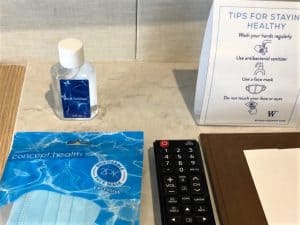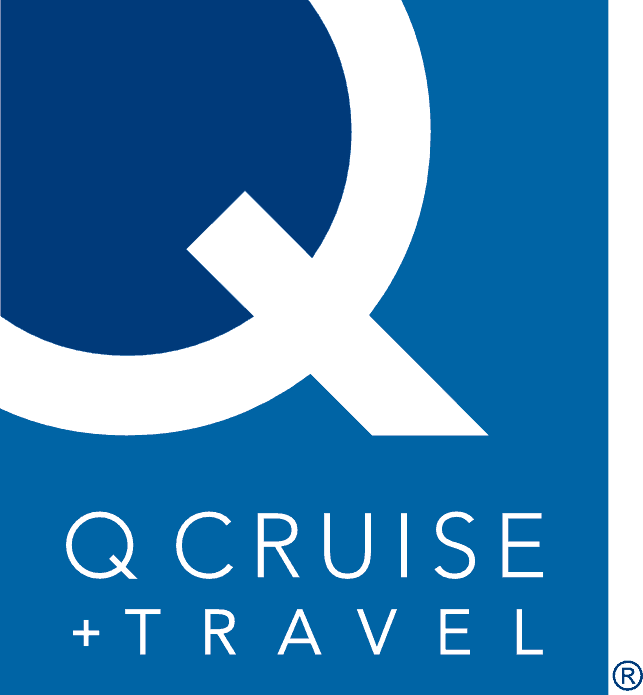Our Blog
10 Tips for Travel Right Now
Rob Clabbers
August 11, 2022
About Q and the Q Team, Hotels, Ocean Cruises, People Ask, River Cruises, Travel Experiences
0

The rules have changed, so here’s an update to our “10 Tips for Travel Right Now”
At Q, we travel to gain first-hand knowledge of hotels, cruise lines, expedition companies, ships, and destinations. That allows us to fine tune our clients’ experiences and help set their expectations – even more important now cruise and land travel have resumed. After all, right now, things are simply different.
During the pandemic, the Q team traveled on dozens of ocean and river cruises, international and domestic land trips, short and long-haul flights. What did we learn? Ten updated travel tips, for travel now:
1) Pack a healthy dose of flexibility and patience
Life changed over the past two years, and it continues to do so. COVID protocols have relaxed at home and in many places abroad. But that doesn’t apply everywhere: some locations and travel providers still apply stricter rules than you’re used to. Changes can pop up at any time too. You must review the rules before starting any trip!
We are also seeing significantly more flight schedule changes than usual. Many airlines reduced workforce and fleet size during the pandemic. The renewed demand for travel means that many airlines and airports are struggling. Airlines tell us that it is not unusual for an air reservation (especially with connections) to undergo more than three schedule changes between the time a flight is booked and the actual trip!
Cruise itineraries may change too. Destinations may be dropped, (sometimes at the very last minute) and onboard or on land experiences (restaurant opening hours, mask requirements) adjusted. Travelers who want to know exactly what their travel experience will be like, and those who get anxious when things change, might consider staying home right now.
2) Plan ahead, budget more
Don’t procrastinate: the best hotels, tour guides, transfer companies and experiences sell out months in advance due to that renewed demand for travel. In fact, some of our local partners in Europe won’t handle any new requests through the fall, because they cannot guarantee the level of service they know our Virtuoso clients expect.
Demand also increases fares for flights and hotel rooms. Reduced capacity and the quest for personal space means that (especially) business class flights can be double or triple the cost in former years. That room you paid $400 a night for in 2019 may very well cost $1,000 this year, especially in always popular destinations like Italy, France, Hawaii, etc.
Want to maximize your travel budget? If you’re open to alternative destinations, give the advisors at Q a call. Or let us start planning your 2023 vacation now, so we can help you get the vacation you want before it is sold out.
3) Vaccination Cards and boosters
Destinations, tour operators and cruise lines may restrict access to those who are fully vaccinated. You may have to show your official COVID certificate, upload it on an airline or immigration website so it can be reviewed digitally, or create a QR code.
Some locations will require you to be “boosted” too, with less than 270 days between your last shot and the last day of your upcoming vacation. Some countries don’t recognize the paper US CDC COVID vaccination card, and you may still have to show a negative COVID test before you can enter.
 4) Lie low before you go
4) Lie low before you go
The incubation time of the virus means that the week before your vacation is not the time for a busy social schedule. Reduce your risk of getting infected a few days before you travel. Avoid crowded places (churches, restaurants, movie theatres, sports arenas, bars, family get-togethers etc.) And while it is tempting to explore restaurants in the embarkation port of your cruise or tour, eat outdoors or in your own “bubble”. Wouldn’t it be a shame to test positive just before your vacation starts?
5) Tests and masks
The US and many other countries no longer require masks on flights, but some international airlines and countries do. They may require you to wear a specific type: (K)N95 or FFP2, or at least a surgical mask. Some are hard to get, so plan ahead and always carry enough, just in case you tear a strap. Verify guidelines on your airline’s website at least a few days before departure.
Many cruise lines have relaxed mask requirements too. Still, most will recommend that you consider wearing a mask in busy areas (the theatre, at muster drills, etc.). Also, on shore excursions, local guidelines will be followed, so be prepared to be masked on buses, in indoor venues and other public areas.
A negative COVID test is no longer required to enter the United States either. But other countries, cruise lines, tour operators and destinations might require proof of a negative COVID test before your vacation can truly begin. Test requirements can be confusing. Rapid antigen or PCR test, in-person or proctored at-home test, number of hours before flight arrival or departure?
Give yourself enough time to understand all test requirements. If needed, schedule your appointments well ahead of time. Be guided by your airline, cruise line, hotel or vacation operator in addition to official government sources of the countries you’ll visit.
6) Test “at home” before you depart
We all hope it doesn’t happen, but should you test positive for COVID, it is better to find out at home before you leave, rather than on arrival in your destination or on your ship. That way, you can alter your plans, hopefully save some money, and “quarantine” at home. Like many of our clients, we will do an at home test shortly before departing on a trip for that extra level of confidence.
7) Print everything – and charge your phone
Airline employees, immigration officers, hotel check-in staff and even restaurant hosts may still ask you for COVID vaccination proof, test results, completed passenger locator forms, affidavits or whatever your destination may require. QR codes only work if your phone is charged. Good-old fashioned paper, sorted in the way you’ll need to present it, and maybe with key information highlighted, may make the process easier.
8) Bring extra medications and more
When you travel, it’s always possible that your original plans may be waylaid, and not just because of COVID. Flight delays or cancellations, weather disruptions… Bring sufficient critical medications to cover you in case your trip is longer than planned – asthma inhalers, blood pressure tablets or whatever you may need. And during COVID, when there is a chance that you may be quarantined, taking another two weeks of supplies is wise.
Oh, and we don’t need to remind you to keep these items in your carry-on bags, rather than in checked luggage, right?
9) Buy insurance – and understand what it covers
Always consider purchasing travel insurance when planning a vacation. (Credit card, home or health insurance only go so far!) In a pandemic, you have even more reasons to do so. Travel insurance doesn’t cover your worries to get ill. But you may be covered if a physician tells you that you cannot travel for medical reasons, for example, in case you are diagnosed with COVID. Your insurance may also help offset certain costs for extra accommodation or travel expenses. (Don’t assume your cruise line or hotel will.) Check with your insurance provider for specifics.
10) Be nice
All of this is new to everyone, and things change rapidly. While that can be frustrating to you, many of the people you encounter have to deal with these changes too – often with fewer colleagues and less information than ideal. Be nice and courteous. It will improve the day of the people you encounter, and yours.
Bonus: All of it is totally worth it!
Yes, travel is more uncertain and a bit more work. Things aren’t quite like they were. But once you’re on the road after months or years at home, enjoying the sights, sounds and flavors of travel again can be magnificent!
Just call your favorite Q travel advisor to help you on your way.
Recent Posts
Archives
- January 2024
- August 2023
- June 2023
- December 2022
- August 2022
- February 2022
- January 2022
- December 2021
- May 2021
- April 2021
- March 2021
- December 2020
- November 2020
- July 2020
- June 2020
- May 2020
- April 2020
- March 2020
- February 2020
- January 2020
- December 2019
- July 2019
- May 2019
- April 2019
- July 2018
- May 2018
- March 2018
- January 2018
- November 2017
- October 2017
- September 2017
- August 2017
- April 2017
- January 2017
- November 2016
- May 2016
- April 2016
- January 2016
- October 2015
- August 2015
- July 2015
Q Cruise + Travel
Contact Info
Address:
980 N. Michigan Ave, Suite 1235
Chicago, IL 60611
Phone: 312-266-7447
Toll Free: 888-744-7397
Message Us ›



